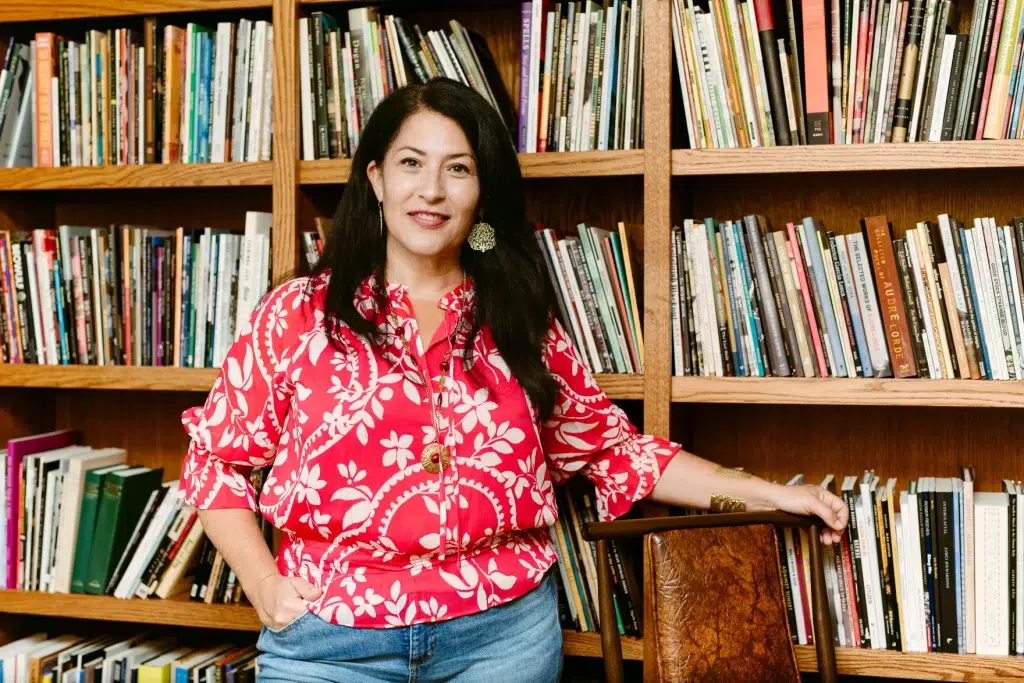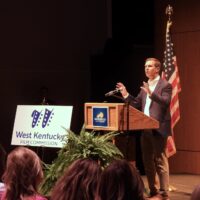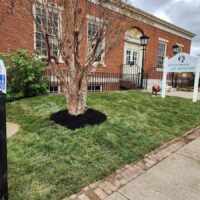The John D. and Catherine T. MacArthur Foundation announced its 2023 class of fellows Wednesday. This group, often known as the “genius grant” recipients, includes current U.S. Poet Laureate and Kentucky poet Ada Limón.
Limón, 47, is the sole Bluegrass State resident among the 20 fellows in the class – which includes scientists, artists, scholars and musicians working at the top of their fields around the United States.
MacArthur grant recipients, according to fellowship program director Marlies Carruth, are selected for the work they’ve done, their ability to do more and their ability to leverage and be enabled by the fellowship. Each fellow receives a grant of $800,000 over the course of five years to spend in whatever fashion they choose.

Nominations for fellows are reviewed over a yearslong process with input from their communities and peers.
Fellows do not apply for the grant and are never officially informed of their nomination unless they are selected. The Associated Press reports that Limón missed a call the day after her grandmother, Allamay Barker, had died. That call was the MacArthur Foundation notifying her of her selection to this year’s class. It wasn’t until the foundation emailed her that she returned their call. Limón said she wept when she heard the news.
“I felt like losing the matriarch of my family and then receiving this, it felt like it was a gift from her in some ways,” she told The Associated Press, speaking from her Lexington home.
Limón was appointed U.S. Poet Laureate in 2022 and named to a historic second term earlier this year. She has authored seven poetry collections – including “The Carrying,” which won the National Book Critics Circle Award for Poetry in 2018. An original work by the poet will be engraved on NASA’s Europa Clipper mission spacecraft, which launches in 2024. Her latest collection, “The Hurting Kind,” was published in 2022.
The MacArthur foundation describes Limón as a poet whose work “often draws from the wonder of the natural world.”
The California-born poet’s recently announced signature project as U.S. Poet Laureate is designed with those themes in mind, aiming to connect people with nature through poetry. The project, called “You Are Here,” includes interactive installations to be installed at national parks across the country and an original anthology of nature writing set to be published next April.
“I was the kid that stared out the window and looked at trees when I should have been paying attention to the teacher and I think I’m still that kid in so many ways – yet now I call those distractions poetry,” Limón said in a MacArthur foundation interview.
The themes of interconnectivity and mortality are also layered throughout Limón’s work.
“I think there is a certain amount of suffering in poetry because there’s a great deal of suffering in living,” Limón said. “Yet at the same time, I think it’s really important to lean into the light, to find the awe, to find the wonder, to remember that just the act of writing itself is a radical act of claiming a part of this moment in time … even though most light functions with a shadow.”






